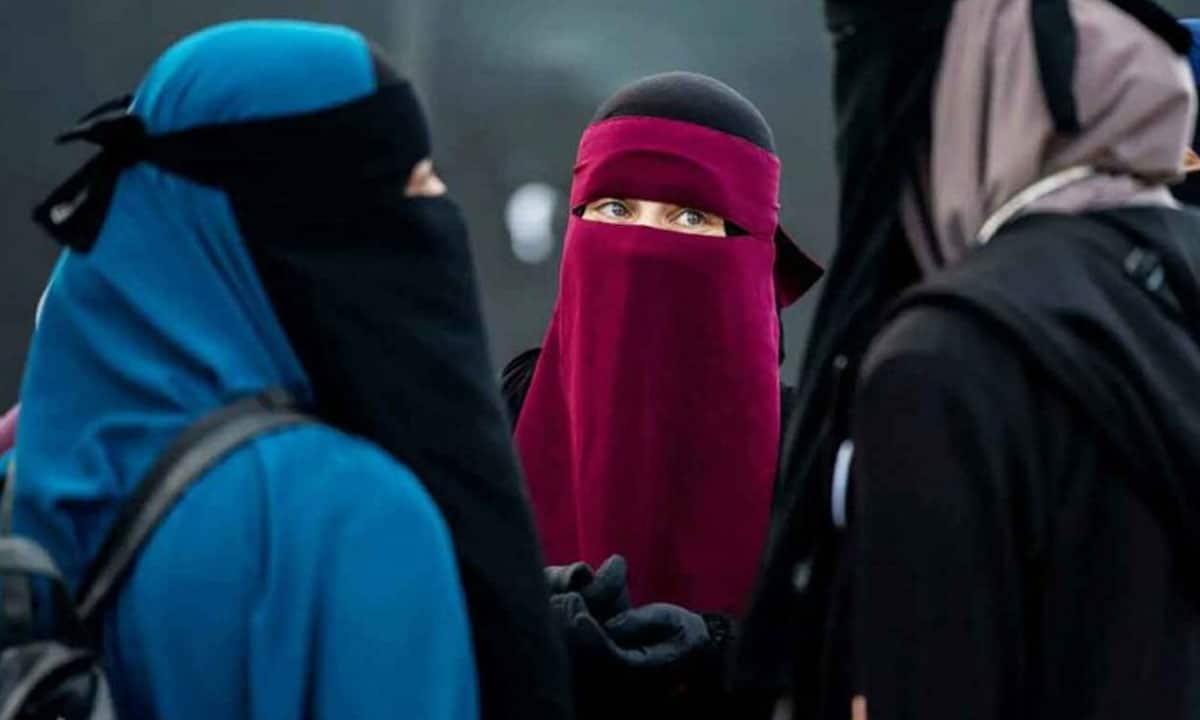Kazakhstan Bans Hijab in Public Spaces: Cultural Identity vs Religious Freedom?
According to the government spokesperson, the new law does not target any specific religious or cultural clothing but applies to all garments that could pose a threat to public safety or obstruct facial recognition in public areas.

Astana, July 2: The Republic of Kazakhstan has officially enacted a law banning all types of face-covering garments (Hijab) in public spaces. The law, signed by President Kassym-Jomart Tokayev, is aimed at preventing the use of attire that conceals the face and hampers identification.
Table of Contents
According to the government spokesperson, the new law does not target any specific religious or cultural clothing but applies to all garments that could pose a threat to public safety or obstruct facial recognition in public areas.
Exceptions for Medical, Seasonal, and Cultural Needs
While the law is strict in its objective, it does allow exemptions under specific conditions. These include:
- Medical reasons (e.g., surgical masks)
- Weather-related needs (e.g., scarves or face coverings during harsh winters)
- Sports activities
- Cultural and traditional events
These exemptions, authorities claim, are designed to ensure that practical and legitimate uses of face coverings are not penalized.
Also Read: Bangladesh’s Sheikh Hasina Sentenced to Six Months in Prison in Contempt of Court Case
Critics Say Law Targets Muslim Women
Despite government claims of neutrality, political analysts and human rights observers argue that the legislation indirectly targets Muslim women’s religious attire, such as the niqab or face veil. Critics believe this is part of a broader campaign to align Kazakh national identity with secularism and reduce visible expressions of Islamic culture in public life.
President Tokayev has previously emphasized the importance of Kazakh national dress and has encouraged citizens to wear clothing that reflects Kazakh cultural heritage rather than foreign traditions.
Part of a Wider Regional Trend
Kazakhstan’s move mirrors similar regulations in other Central Asian countries, such as Uzbekistan and Tajikistan, where religious expression in public spaces has been restricted under the guise of promoting national identity and unity.
Observers believe this reflects a growing tension between secular governance and religious freedom in post-Soviet Central Asia.
Freedom of Expression or State Control?
The new law has ignited a nationwide debate. Questions are being raised about the state’s role in regulating personal attire and whether such actions constitute a violation of individual religious freedoms.
Sociologists, religious scholars, and human rights activists remain divided:
- Some argue that public safety and national cohesion justify such laws.
- Others view it as an overreach by the state that undermines Kazakhstan’s constitutional guarantees of religious freedom.
Growing Voices of Concern
Human rights organizations, both within and outside Kazakhstan, have called on the government to ensure that such laws are not misused to marginalize specific religious or ethnic communities. They also warn that such bans, though subtle in language, may fuel Islamophobia and alienate practicing Muslim women from public life.
As the law takes effect, all eyes are now on how it will be implemented and whether Kazakhstan will strike a balance between preserving public order and upholding the fundamental rights of its citizens.
